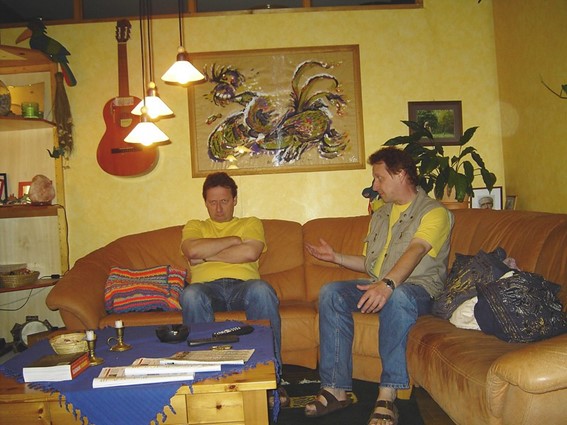Why Does He Feel This Way?
Some twins seek psychotherapy because they feel stuck in their relationship. Diminished communication, lack of physical proximity, angry interactions, or emotional tension can contribute to feeling detached. Many twins can explain why they think their twinship has changed, while others are clueless. My male patients seem more hindered in this capacity. Because they do not seem to need many outside attachments, they are content to hang out with their twin and share activities, hobbies, and sports. Being together without any outside social or peer pressure is a relief. The twin bubble provides one or both siblings with a sense of security, comfort, and containment.
However, as young adulthood approaches, societal expectations begin to weigh heavily on twins who have avoided social pursuits. They often are not particularly interested in or comfortable with dating because the twin connection more than fulfills their needs. However, if one brother becomes less invested in perpetuating the twinship and shows interest in forming significant outside relationships, the other twin might find himself lost and alone. Having never learned to articulate emotions, he has difficulty working through the perceived abandonment.
A young man in his early twenties, whom I will call Bryan, contacted me with such a dilemma. He began seeing a woman at the beginning of his senior year in college. Both he and his identical twin, “Stuart,” attended the same university. At first, Stuart paid little attention to how much time Bryan spent with “Michelle.” While Stuart noted fleetingly that he felt sad that his brother was not around as much as before, he avoided thinking about Bryan’s absence. After the twins graduated and moved to different towns for jobs, Bryan announced to his family that he and Michelle were moving in together.
The news hit Stuart like a ton of bricks. He was completely unprepared for the torrent of feelings that were unleashed inside of him. He had no ability at that time to articulate his thoughts or feelings. He became depressed, withdrawn, and sullen. He stopped visiting his family. Although he continued to show up for work, being alone at home felt like a death sentence. He stopped eating regularly, gave up his rigorous workouts and outdoor sporting events, and languished in a disoriented emotional oblivion.
Bryan contacted me to find help for Stuart. Bryan was upset to see Stuart so distraught and had difficulty understanding why he was reacting this way. From Bryan’s perspective, living with his girlfriend seemed like a reasonable arrangement. Why was Stuart acting like this was the end of their twinship? Bryan was deeply invested in his love for his brother and could not figure out how his relationship with Michelle nullified his connection with Stuart.
I urged Bryan to read The Same but Different. After he finished it, he told me that the book gave him a new perspective on his twinship with Stuart and on twin relationships in general. He gained insight into Stuart’s reactions and feelings. Bryan has learned to listen to Stuart’s feelings of betrayal and anger without becoming defensive or punitive. Bryan hopes to continue these dialogues with Stuart so they can hear one another’s point of view. If both have opportunities to share their painful feelings, I have hope that their relationship can tolerate divergent attitudes and desires.
Image courtesy of Erich Ferdinand (CC BY 2.0)


